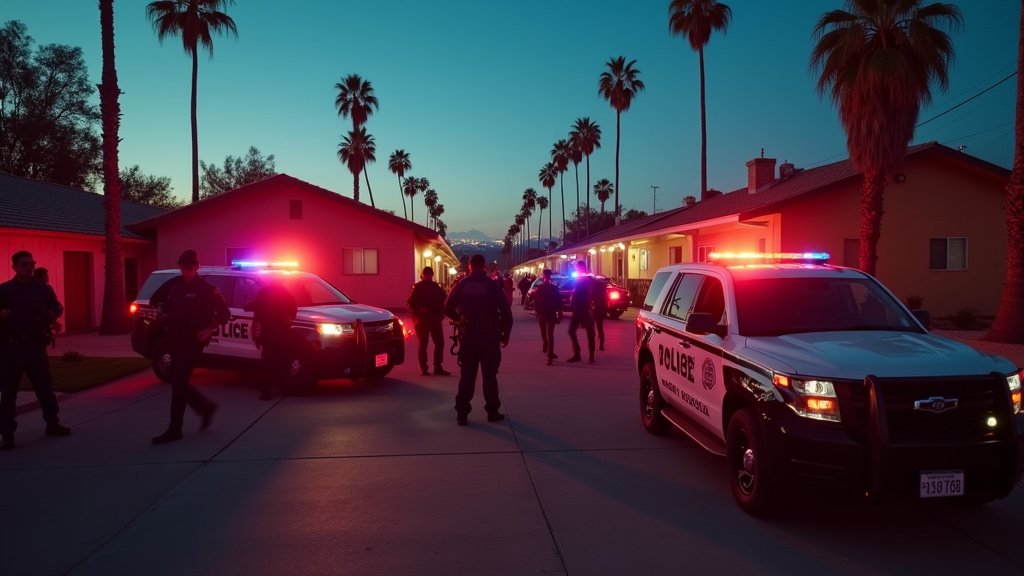Federal immigration agents in Southern California maintained a high rate of arrests throughout June, focusing primarily on immigrants without criminal convictions. Data released by Immigration and Customs Enforcement (ICE) revealed that between June 1st and June 26th, a total of 2,031 individuals were apprehended across a seven-county region. A significant majority of those arrested, approximately 68%, had no prior criminal convictions. Further, 57% of those detained had never faced any criminal charges. This surge in arrests has raised questions about the agency’s priorities and the impact on immigrant communities in the region.
Scope of Operations
The seven-county area where the arrests occurred encompasses a broad geographical area within Southern California. This suggests that the enforcement activities were not isolated to a single location but rather a coordinated effort across multiple jurisdictions. The large number of arrests within a relatively short timeframe highlights the scale of the operations undertaken by ICE agents. The data, however, also indicates a pattern in the types of individuals being targeted. The fact that a majority of those arrested had no criminal record raises concerns about the criteria used to identify and detain individuals.
Key Figures and Statements
Gregory Bovino, a U.S. Border Patrol sector chief stationed near the U.S.-Mexican border in Imperial County, has been identified as a key figure in these operations. On July 8th, Bovino stated that agents were successfully apprehending criminal illegal aliens. This statement contrasts with the data released by ICE, which indicates that a substantial proportion of those arrested had no criminal history. This discrepancy has become a point of contention, with critics questioning the accuracy of Bovino’s assertion and the broader rationale behind the enforcement actions.
Context and Recent Developments
Previously, on Tuesday, a decision was made regarding the deployment of National Guard troops in Los Angeles. Approximately half of the troops were released from their duties in the area. While the reasons for this decision were not provided in the facts, it is important to note that it occurred around the same time that the increase in immigration arrests was taking place. It is important to consider how this decision could potentially impact the overall environment of law enforcement in the region.
Data Analysis and Implications
The ICE data provides a detailed picture of the enforcement actions undertaken during June. The arrest figures, coupled with the breakdown of criminal records, offers a valuable insight into the scope and nature of these operations. The fact that more than half of those arrested had never been charged with a crime suggests that the agency may be prioritizing individuals based on immigration status rather than criminal history. This raises questions about due process, civil rights, and the potential for racial profiling. The data also allows for a deeper understanding of the relationship between federal agencies and local communities. The widespread arrests have caused concern among immigrant communities, who fear being targeted regardless of their criminal history.
Community Impact
The impact of these arrests extends beyond the individuals detained. The raids and enforcement actions can create a climate of fear and distrust within immigrant communities. Families can be separated, and individuals may be deported, regardless of their ties to the United States. The focus on non-criminal immigrants has also raised concerns about the allocation of resources, with critics arguing that these resources could be better used to address other pressing law enforcement issues.
Legal and Political Considerations
The ongoing enforcement actions and the data released by ICE have drawn increased scrutiny from legal experts, civil rights organizations, and political figures. Questions have been raised about the legality of targeting individuals without criminal convictions, as well as the potential for these actions to violate constitutional rights. The debate over immigration enforcement is ongoing, and this data contributes to the broader conversation about immigration policy and its implementation.
Future Outlook
The trend of increased arrests, especially of individuals without criminal convictions, raises important questions about the future of immigration enforcement in Southern California. As the issue is discussed more publicly, it is highly likely that further policy adjustments and legal challenges will arise. Public attention on the issue is also likely to increase as more information becomes available. It is important to note that enforcement actions will likely remain a key aspect of the immigration discussion in the area.






